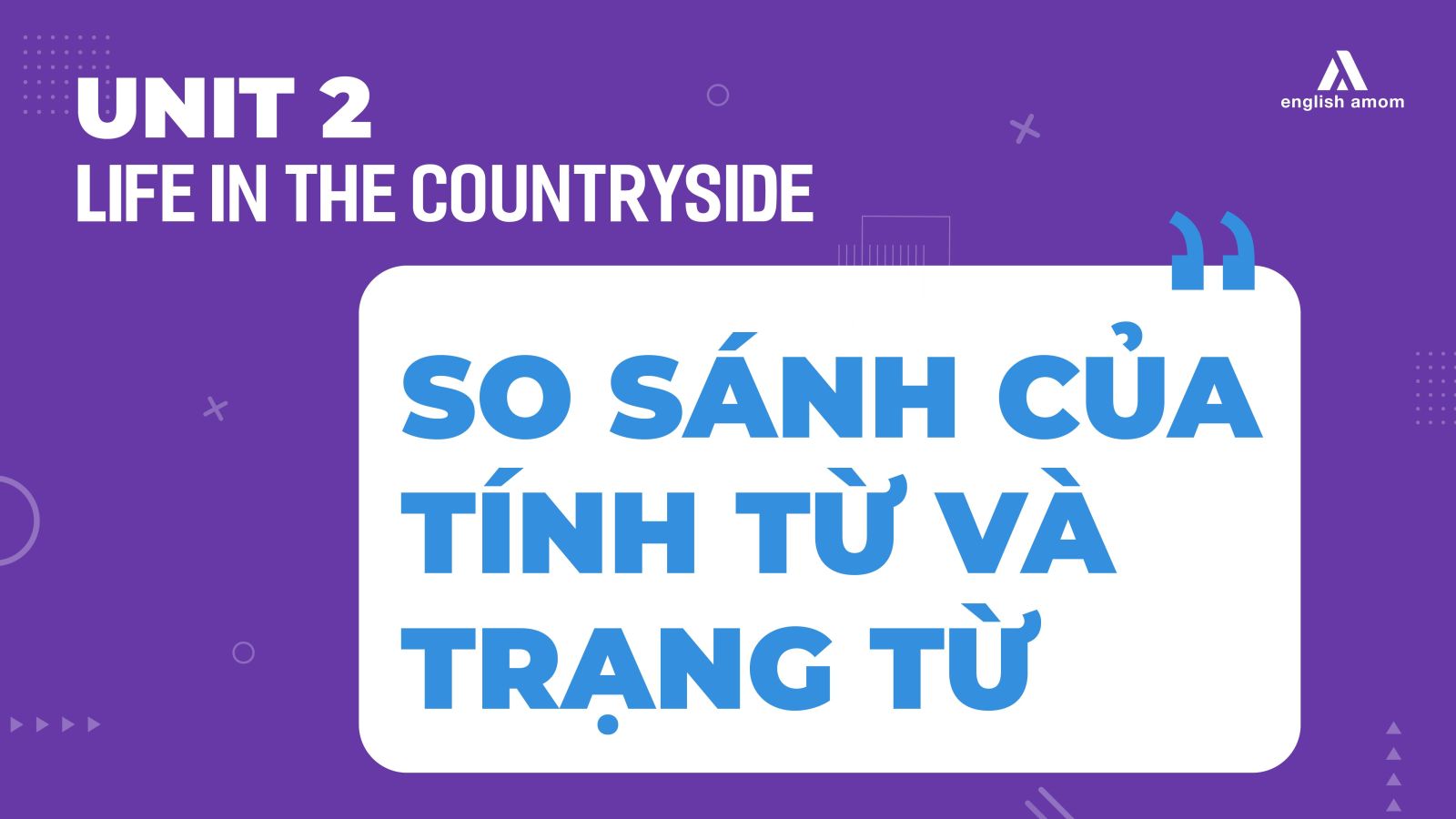
► Kênh hỏi đáp và giải thích thắc mắc kiến thức MIỄN PHÍ → truy cập LINK NHÓM: ENGLISH AMOM
► Kênh YOUTUBE hệ thống toàn bộ bài giảng CLIPS: truy cập LINK: ENGLISH AMOM CHANNEL
► Kênh TIKTOK: ENGLISH AMOM
I. LÝ THUYẾT
A) CÔNG THỨC SO SÁNH CỦA TÍNH TỪ
1) Tính từ ngắn
Cấu trúc :adj. + er + (than)
► Đối với tính từ cấu thành từ một âm tiết khi sử dụng để so sánh cần thêm -er vào phía cuối.
► Đối với tính từ cấu thành từ hai âm tiết mà kết thúc bằng y, khi sử dụng để so sánh hơn, chúng ta bỏ y thêm ier.
Ex: happy – happier; crazy - crazier
2) Tính từ bất quy tắc
► Đối với các tính từ ở nhóm tính từ bất quy tắc, khi sử dụng để so sánh cần phải sử dụng dạng biến đổi bất quy tắc tương ứng.
Ex:good - better, bad - worse
Ví dụ: The education in USA is better than in Vietnam.
3) Tính từ dài
more/ less + adj. + (than)
► Đối với những tính từ dài có nhiều âm tiết chúng ta thêm vào trước nó more khi so sánh hơn, hay less khi so sánh kém và giữ nguyên tính từ.
Ví dụ: His car is more expensive than mine.
B) CÔNG THỨC SO SÁNH CỦA TRẠNG TỪ
1) Trạng từ thông thường
Cấu trúc: more/ less + adv. + (than)
► Đối với trạng từ có hai âm tiết khi dùng dạng so sánh ta thêm đuôi ly vào đuôi. Do đó, trong cấu trúc so sánh hơn hoặc so sánh kém, chúng ta sử dụng more/ less trước trạng từ.
Ví dụ: People treat others more kindly in the village than in the city.
2) Trạng từ dạng thức giống tính từ
Cấu trúc: adv. + er + (than)
► Đối với những trạng từ có dạng thức giống hệt như tính từ, chúng ta chỉ cần thêm er sau mỗi từ giống như quy tắc thêm er cho tính từ và sử dụng than theo sau.
Ví dụ: People work harder in the village than they do in the city.
3) Trạng từ bất quy tắc
Cấu trúc: Irregular adv. + (than)
► Đối với những trạng từ bất quy tắc, chúng ta biến đổi trạng từ theo dạng so sánh hơn cố định của nó. Đó là: little - less, well - better, badly - worse, far - farther/ further.
Ví dụ: People work harder but earn less in the village.
II. BÀI TẬP
1) Complete the passage below with a suitable comparative form of the adjectives provided ( Page 19 )
Sometimes I hear adults around me say that it is (0. good) better for children to grow up in the city than in the countryside. They say that the city offers a child more opportunities for (1. high) ........... education, and (2. easy) ........... access to (3. good)...........facilities. Life there is (4. exciting) ........... and (5. convenient) ............
They may be right, but there’s one thing they might not know. I feel (6. happy)...........here than in a crowded and noisy city. Country folk are (7. friendly) ........... than city folk. I know every boy in my village. Life here is not as (8. fast)...........as that in the city and I feel (9. safe) ............ Perhaps the (10. good)........... place to grow up is the place where you feel at home.
ĐÁP ÁN:
| (1) higher | (2) easier | (3) better | (4) more exciting |
| (5) more convenient | (6) happier | (7) more friendly/ friendlier | (8) fast |
| (9) safer | (10) best |
4) Underline the correct comparative forms to complete the sentences ( Page 20 )
1. People in rural areas of Britain talk optimistically/more optimistically about the future than city people.
2. In India, rural areas are more popularly/popular known as the ‘countryside’.
3. A village is less densely populated/more densely populated than a city.
4. City people seem to react quickly/more quickly to changes than country people.
5. Medical help can be less easily/more easily obtained in a city than in the countryside.
6. A buffalo ploughs better/more well than a horse.
ĐÁP ÁN:
|
1. more optimistically |
2. popularly |
3. less densely populated |
|
4. more quickly |
5. more easily |
6. better |

